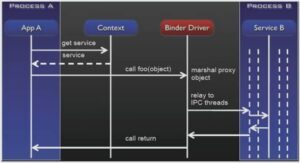Images of the Garden of Eden and the Melting
Pot
THE PARADOXICAL NOTION OF AMERICA IN THE AMERICAN SETTLEMENT AMERICAN SETTLEMENT
Harsh realities of colonial life
Harsh realities of colonial life rsh realities of colonial life Crevecoeur made a dividing line between Europe and America and portrayed the people who left Europe as low class people intended to creating a more egalitarian state as opposed to Europe with kings and aristocrats. Crevecoeur felt a huge change compared to hundreds of years ago, he acknowledged a “fair country discovered” starting to enjoy liberty and sharing a sense of nation pride. Moreover, the enlightened Englishman tried to compare Europe and the new continent, the discrepancy that exist in terms of the new society and the “prospect that inspired good citizens”. For him Europe is a land composed of great lords with everything at hands, and overpopulated who have nothing; regarding the new continent, there is no aristocrat families, no courts, no kings, no great manufacturers, no luxury etc. That’s why they said: The rich and the poor are not so far removed from each other as they are in Europe. Some few towns excepted, we are all tillers of the earth, from Nova Scotia to West Florida. We are a people of cultivators, scattered over an immense territory, communicating with each other by means of good roads and navigable rivers, united by the silken bands of mild government, all respecting the laws, without dreading their power, because they are equitable. We are all animated with the spirit of an industry which is unfettered and unrestrained, because each person works for himself. If he travels through our rural districts he views not the hostile castle, and the haughty mansion, contrasted with the 9 clay- built hut and miserable cabin, where cattle and men help to keep each other warm, and dwell in meanness, smoke, and indigence.1 How a country like this new continent can, become what it is without being composed of what is cited above? It is partly, through unity, team working spirit in various fields. It is through devotion, hardworking, sacrifice and self-trust they managed to achieve their “goal”; this is illustrated by the use of the “we” as symbolizing unity. At the onset of the American Revolution, Crevecoeur felt very uncomfortable as it was clear, he disliked the British administration. He is talking the building of a new nation from the point of view of a farmer. Letters from an American farmer is at the same time, the eye of an outsider who has become an insider in the history of American development. He tries to oppose America and Europe in such a case where America was wildness, was not civilized, and European brought their culture, their aristocracy in a society of different classes whereas in America there is aristocracy, all is equal. Even in the religious field, in Europe the church has certain supremacy contrary to America where everyone is his own bishop. What attachment can a poor European emigrant have for a country where he had nothing? The knowledge of the language, the love of a few kindred as poor as himself, were the only cords that tied him: his country is now that which gives him land, bread, protection, and consequence: Ubi panis ibi patria, is the motto of all emigrants
John Winthrop’s view of the city upon a hill
John Winthrop’s view of the hn Winthrop’s view of the city upon a hill city upon a hill John Winthrop’s “City upon a Hill”, described the mission and vision to start a “New England”, which became known as the United States of America. John Winthrop believed that a perfect society could exist in a perfect city where everyone worshiped and worked together in harmony. He envisioned a community so nearly woven together that everyone was equally important to the future of the city, a city where a pure form of Christianity would exist, which would be morally and religiously a reference for the rest of the world. However, not everyone agreed with him; Thomas Jefferson, for instance, did not have the same view as Winthrop. Jefferson thought Winthrop’s view radically idealistic and knew he was up against enormous odds. Jefferson and Winthrop did not have the same background. Jefferson was considered as a Deist and believed God created the world, but pretty much left it up to man to create or build the world he wants. The birth of ideologies and social orders in America include also the political progress made thanks to the political writers of the colonial period. They were preoccupied by the political and economic matters that convulsed American colonies from 1763 to 1776. These political writers became then receptive to ideas from abroad that seemed to corroborate their own experiences. Among the ideologies they developed, was the doctrine of natural rights dealing with issues touching on matters of religion, economics, government… In addition, the new ideologies developed by the political writers and thinkers had helped to have a political progress in America for a new social order. And as Crevecoeur stated: “the American is a new man who acts upon new principles. He must therefore entertain new ideas and form new opinions”. All of this illustrates the surprising change and metamorphosis that had taken place in America. The puritans believed in a “nation under God” which would be a just and pious one. Moreover, this goes back to the ancient Israel and is still a major driving spirit in America; this was their dream and vision about New England. Winthrop in somehow tried to sensitize others 20 about their “treasure” that “this land was to be a model society of Christian love meaning they should take care for each other as they cared for themselves and, more specifically, there should be no poor among them. And founding a good Christian city upon a hill, we shall find that the God of Israel is among us, when ten of us shall be able to resist a thousand of our enemies, when he shall make us a praise and glory, that men shall say of succeeding plantations: the lord make it like that of New England: For we must Consider that we shall be as a City upon a Hill, the eyes of all people are upon us; so that if we shall deal falsely with our God in this work we have undertaken and so cause him to withdraw his present help from us, we shall be made a story and a byword through the world, we shall open the mouths of enemies to speak evil of the ways of God and all professors for God’s sake; we shall shame the faces of many of gods worthy servants, and cause their prayers to be turned into Curses upon us till we be consumed out of the good land whether we are going.11 The puritans were men of ardent piety who took literally and seriously the doctrines of salvation by faith. They considered that true Christian should accept the will of God as said in the divine revelation; they condemned the Church of England because they wanted to establish the law of God, and they entered with their allies the parliamentarians into a war against the king and his defenders. They succeeded in murdering the king and then imposed their supremacy. But unfortunately, the puritans disputed among themselves and they were dismissed from the Church of England. Some of them sailed to the New World. After they had arrived in America, the puritans realized that the land was a gift. A gift, given by God the Almighty, incited them to consider themselves as a “chosen people”. At that time America was a wilderness where they had difficulties to survive. 11 Htt://www.mtholyoke.edu/acad/intel/Winthrop.htm: John Winthrop, City Upon a Hill, 1630 21 The colonists, meaning the puritans, had to build out a new life for their family. Even though they faced great difficulties, they believed that their efforts would be appreciated and rewarded by God. They imagined a better future for their descendants. The puritans were known to be hard working, it was from their determination, their efforts, their perseverance and their ideas based on the Revealed Scriptures that they manage to make America a land of prosperity. That meant that their opinions had an impact on American politics, economics, and of course on American society as a whole. The puritans contributed a lot to the making of the country by playing a major role in American education. Indeed, they built many schools and universities. They also thought that education would enable people to be capable of reading the Bible and worshipping God and being willing to accept the doctrine of fate or destiny. Predestination means to do something in advance or before. For the puritans, predestination was central to their belief; it was inscribed in their mind. Human beings did not need to understand because it was God’s field the Almighty, who only know what is going to happen in the future. The puritans thought that God in his goodness would absolve some men and women despite their guilt. Those men and women who were chosen, were cold the “elect” or the “predestined”. All the rest were called the reprobate. The puritans stated that human beings were by nature deprived, corrupted, and they all deserved damnation. That fact to choose whom to save and whom to damn was called double predestination. They believed that whatsoever they succeeded in obtaining in that life was predestinated and God had already decided so before. That urged Thomas Jefferson to say in the draft of the Declaration of Independence that: “and for the support of this Declaration, with a firm reliance of divine providence, we mutually pledge to each other our lives, our fortunes, and our sacred honor” 12. Thomas Jefferson showed once more the importance of God in puritans’ circle. The puritans even promised to gather whatever they possessed and helped each other for God’s sake.
ACKNOWLEDGEMENT |






